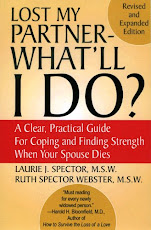
10/10/22
widowhood way back when: what inspired the widowed columbus

In honor of Columbus Day, here’s some interesting information about Christopher Columbus’s personal life we found on answers.com.
After several local voyages, Columbus found himself in Portugal, “…where he married Felipa Perestrelo e Monis, daughter of Bartolomeu Perestrelo, deceased proprietor of the island of Porto Santo.
The couple lived first in Lisbon, where Perestrelo's widow (aka Columbus’s mother-in-law), showed documents her husband had written or collected regarding possible western lands in the Atlantic, and these probably started Columbus thinking of a voyage of investigation.
Later they moved to Porto Santo, where his wife died soon after the birth of Diego, the discoverer's only legitimate child.
After his wife's death, Columbus turned wholly to discovery plans and theories, among them the hope to discover a westward route to Asia.”
The post goes on to say that while waiting in Spain for royal permission to discover the New World, “…the widowed Columbus had an affair with young Beatriz Enriquez de Harana of Cordova, who in 1488 bore his other son, Ferdinand, out of wedlock. He never married her, though he provided for her in his will and legitimatized the boy, as Castilian law permitted.”
Widowed or not – never underestimate the influence of in-laws!
Subscribe to:
Posts (Atom)
